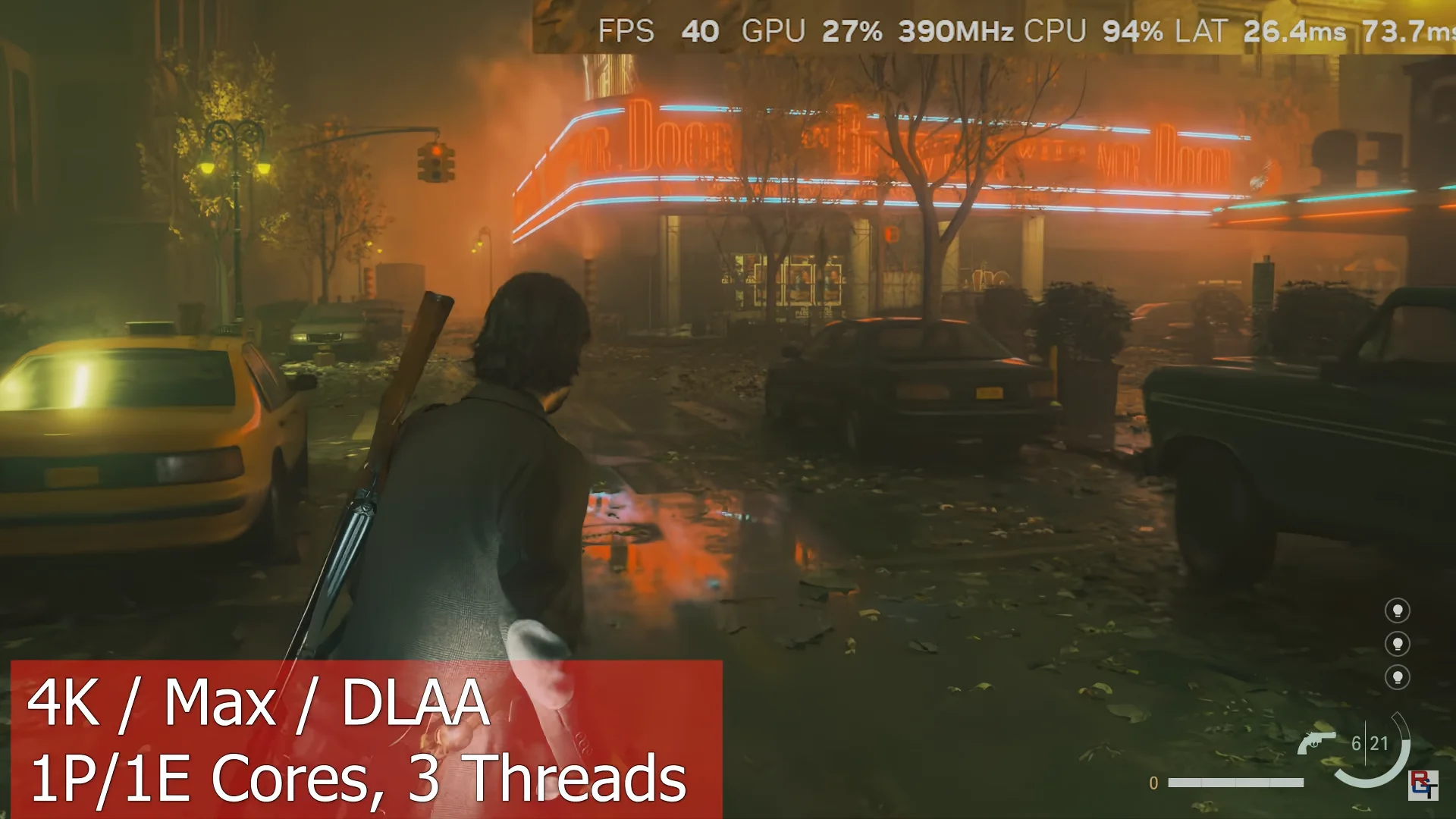Revealed: How Modern Games Perform On A Single CPU Core

RedGamingTech on YouTube tested games by using a single and dual CPU cores. The results of his tests were very surprising.
The first ever CPU with dual cores was released way back in 2001. However, Intel released it’s first dual-core CPU only three years later. It was named Pentium D. AMD followed by releasing its own dual-core CPU a month later. It was in the form of Athlon 64 X2.
Later, in 2007, Intel released the first quad-core CPU. AMD too followed Intel and released its own quad-core CPU the same year.
Since then, both Intel and AMD have added more cores to their CPUs. Some modern CPUs like Intel i9-14900K come with 24 cores. This includes 8 performance and 16 efficient cores. AMD too has its own version, the Ryzen 9950X for example comes with 16 (8+8) big sized full performance cores.
The idea behind the increase in core counts remains the same. The more the cores, the more parallel processing the CPU can do. This helps massively in some applications. It’s also understood that it helps a lot with gaming too, as most modern games are made with multiple cores in consideration.
So a question arises. What if one tries playing modern games on a single CPU core. Is that possible. Will that work. Now we have an answer for it.
Games on a Single CPU Core
RedGamingTech on YouTube is best known for his hardware leaks. Including leaks about CPUs, GPUs and even consoles. He somehow had this crazy idea of testing modern games on a single CPU or dual CPU core and check whether, it at all, they can run or perform well.
In his YouTube video (same one above) titled “1 CPU CORE & RTX 4090 Vs Ray Traced AAA Games – Will They Run?”, RedGamingTech tested various games.
For testing them, he used a powerful Intel i9-13900K CPU and Nvidia GeForce RTX 4090 graphics card. He tested all the games on 4K resolution at max settings, that too with ray tracing enabled wherever available. The cores were enabled / disabled via the BIOS.
Now it’s worth mentioning. Games are very GPU bound when running at a 4K resolution. Games are more CPU bound when running at lower resolutions like 1080p. That’s why most reviewers test graphics cards at 1440p and 4K, while CPUs are best tested at 1080p or sometimes even 720p. So him testing on 4K does take away some CPU power requirements. But it’s still very interesting to check.
Surprising Results
Anyway. The result of his tests were surprising. Some games did actually work fine on a single P-core. While some need one more E-core to be enabled. Some needed a lot of cores to actually work. Some crashed in between. Also, many even stuttered.
For example, Cyberpunk 2077 did manage to run on a single P-core, but had a lot of stuttering. Still, it managed to run at an average of about 30FPS with DLSS. However, enabling 2 P-cores allowed better performance.
Resident Evil 4 Remake did relatively better. Running anywhere from high 30s to low 60FPS. All on a single core.
The biggest surprise was Alan Wake 2, which is a really graphically detailed game. While the game didn’t boot with just a single P-core enabled, it ran flawlessly on a single P-core and a single E-core enabled CPU. That too without DLSS frame generation, but power hungry DLAA enabled. The FPS in the game is around 30 to 40FPS. With the GPU hardly being utilized.
He tested many other games in his video. Worth checking it out. Especially to understand the details about them.
Conclusion
From years, we have had gamers demand more cores on a CPU at a cheaper price. Because of this, CPU companies have tried delivering too. These days, 6-cores CPUs have become mainstream. Whereas newer quad-core CPUs are outright rejected as underpowered despite some reviews suggesting otherwise, especially for resolutions for 1080p.
But the above video shows that it’s not all bad. Many games did manage to perform fine with a single P-core and a single E-core enabled together. Showing how single core performance matters as much as a multicore one. But, that doesn’t mean that it should be taken as a done deal, though. Especially for future games.
The video was a fun test. While it reveals that many games do play well, most games going forward will require powerful CPUs with more cores. This is because many big sized games are first made with consoles in consideration and then ported to PC.
Going forward, consoles could increase its CPU core count significantly. So the requirements of powerful CPUs with more cores for PCs will increase too. Not to forget bad PC ports of these console games.
So yes. Interesting test. Gives us some useful insights. But don’t decide your CPU purchase based on it.




